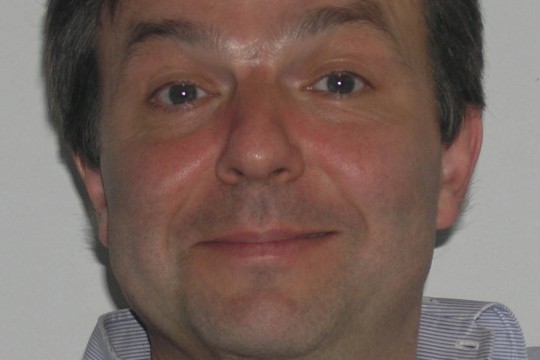A hierarchical network of nicotinic receptors on interneurons determines cortical activity in mice
The prefrontal cortex (PFC) underlies higher cognitive processes that are modulated by cholinergic inputs via nicotinic acetylcholine receptors (nAChRs). It exhibits spontaneous “default” activity, which is altered in neuropsychiatric disorders, including schizophrenia, that in turn is accompanied by heavy smoking. Recently, robust genome-wide association studies (GWAS) identified single nucleotide polymorphisms (SNPs) in the human CHRNA5 gene, coding for the α5 nAChR subunit, that increase risk for both smoking and schizophrenia. Mice with altered nAChR gene function exhibit PFC dependent behavioral deficits, but how the corresponding human polymorphisms alter the cellular and circuit mechanisms underlying the behavior is unknown. We have been able to show that α5SNP mice, expressing the human α5 D398N coding SNP, rs16969968, exhibit deficits in behaviors thought to represent human cognitive alterations in schizophrenia. Using awake two-photon imaging of mouse models, we demonstrate that nicotine can differentially influence PFC pyramidal cell activity. This occurs through specific alterations within a hierarchical circuit of inhibitory neurons within layer II/III. Specifically for α5SNP and α5 knock-out (α5KO) mice, decreased activity of vasoactive intestinal polypeptide (VIP) interneurons resulted in an increased somatostatin (SOM) interneuron inhibitory drive of layer II/III pyramidal neurons. The decreased activity observed in α5SNP mice coincidently mirrors the hypofrontality observed in patients with psychiatric disorders, including schizophrenia and addiction. Chronic nicotine administration reversed this hypofrontality to control levels, suggesting a therapeutic strategy for the treatment of schizophrenia, and a physiological basis for the tendency of patients with schizophrenia to self-medicate by smoking.
Institut Pasteur
Neurobiologie intégrative des systèmes cholinergiques
CNRS UMR 3571 – Département de Neuroscience
25, rue du Dr Roux
75724 Paris Cedex 15
Invité par F. MUSCATELLI
Salle de conférence INMED le lundi 19 juin 2017 à 11h

